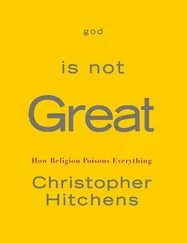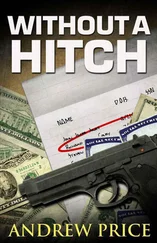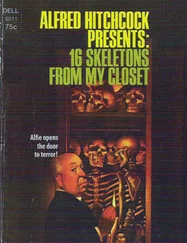I write this in a week where I have been re-reading Northanger Abbey , and reflecting once again on the sheer justice of Kingsley’s verdict on Miss Austen’s “inclination to take a long time over what is of minor importance and a short time over what is major.”
I was later rather startled, not to say impressed, when I learned that he had “cleared” all this “research” with his then-wife, the fragrant and lofty Antonia. He telephoned her in London and, rather than temporize, informed her right away that: “I’m going to a handjob parlor with the Hitch.”
The only time that he ever seemed at all literal to me was in his absorption with soccer games. He would even buy tabloid newspapers on the following day, “to read accounts of previously played football matches” as I tried discouragingly to put it. From him I learned to accept, as I have since learned to accept from my son and my godson Jacob Amis and their friends, that there are men to whom the outcome of such sporting engagements is emotionally important. This is a test of masculinity, like some straight men’s fascination with lesbianism, which I simply cannot seem to pass.
Indeed, insistence upon the capacious subtleties of the limerick was something of a hallmark. Once again Conquest takes the palm: his condensation of the “Seven Ages of Man” shows how much force can be packed into the deceptively slight five-line frame. Thus:
Seven Ages: first puking and mewling
Then very pissed-off with your schooling
Then fucks, and then fights
Next judging chaps’ rights
Then sitting in slippers: then drooling.
This is not the only example of Conquest’s genius for compression. The history of the Bolshevik “experiment” in five lines? Barely a problem:
There was an old bastard named Lenin
Who did two or three million men in.
That’s a lot to have done in
But where he did one in
That old bastard Stalin did ten in.
A comparable if not equivalent consideration sometimes applied in the “other” case: for all his indomitable moral courage Solzhenitsyn had already begun to show signs of being an extreme Russian nationalist and partisan of religious orthodoxy. The synthesis for which one aimed was the Orwellian one of evolving a consistent and integral anti-totalitarianism.
Colin, who went on to become a distinguished author of books on James Joyce and Jean-Luc Godard, years later called me from China where Deng Xiaoping had just announced that his reforms would mean that all would get richer but some would get richer than others. “So it looks as if your pal Orwell was on to something after all.” I thought that was a handsome enough concession. It was rather a poor return, when his friend the grim and fraudulent Stalinist philosopher Louis Althusser was convicted of murdering his wife, for me to say, “I see Comrade Althusser has been awarded the electric chair of philosophy at the Ecole Abnormale.”
O’Brien’s definition of liberalism as a position “that made the rich world yawn and the poor world sick” is a phrasing that older readers may remember if only because of Phil Ochs’s bitingly satirical song “Love Me, I’m a Liberal.” Arrested once in Oxford for disrupting a cricket match with an apartheid South African team, I was able to get myself acquitted of the police frame-up because a bystander came forward and offered himself as an impartial witness. He was a highly respectable citizen and cricket-watcher and the treasurer of the local Liberal Party. Attending the trial and after giving his testimony, he saw me refuse to take my oath on the Bible and heard me tell the bench as my reason that I was “an atheist and a Marxist.” After the hearing was over, he came up to me and said that if he had known that I was that kind of person, he would never have volunteered to testify. For many years, this well-meaning but invertebrate figure was my ideal type of the “liberal” mentality, and he still comes back to me at odd moments.
The British Foreign Office may be an exception here. Its bureaucrats continued to spout the lie, born of the wartime alliance with Stalin, until the Soviet Union beat them to it under Mikhail Gorbachev and officially accepted responsibility for Katyn in 1990.
In justice to Borges it has to be added that a few years later he came to realize that he had been duped by the junta, and did sign a rather courageous petition about the desaparecidos . Men like him often, and in spite of their inclinations, have a natural “gold standard” when it comes to questions of principle.
I still know someone who was at the very, very far-out meeting that founded the “Weatherman” faction. He too was strongly for a Bob Dylan sloganography but held out for the sect to be named “The Vandals,” because in another and equally telling “underground” line of Dylan’s “Subterranean Homesick Blues,” is it not truly said: “The pump don’t work ’cos the vandals took the handle”? Get sick, get well… my friend’s recovered now.
An old joke has an Oxford professor meeting an American former graduate student and asking him what he’s working on these days. “My thesis is on the survival of the class system in the United States.” “Oh really, that’s interesting: one didn’t think there was a class system in the United States.” “Nobody does. That’s how it survives.”
In my first months of living in Washington, D.C., I went to a Ku Klux Klan rally where the sheeted marchers were protected from furious counterdemonstrators by phalanxes of imperturbable black policemen who saw to it that the constitutional rights of those who detested them were duly and good-humoredly upheld.
I was to learn this earlier than most people by a piece of induction of which I am still faintly proud. Bob Woodward and Carl Bernstein had both sworn that they would never reveal Deep Throat’s identity until he died, or until he gave them further notice. But Carl Bernstein had been married to the tempestuous Nora Ephron, and I believed from knowing both of them slightly that it was impossible for Nora not to have asked, and even more impossible for Carl not to have told her. Nora’s best friend was Annie Navasky, adorable wife of Victor. I therefore evolved the plan of asking Annie. She said—this, by the way, was at a dinner for Alger Hiss—that she had been told the name but that it didn’t ring a bell and wasn’t exciting and that she’d forgotten it. Overcoming my discouragement at this, I adopted the more direct approach of asking Nora straight out. She also said that it wasn’t sensational—this was in the days when crazy people thought Deep Throat might have been Henry Kissinger—but told me that to the best of her recollection it was an FBI man called Felt. For quite a while I myself could not believe that it was the same one, so I missed yet another chance for a scoop.
I am sometimes asked about the concept or definition of a “public intellectual,” and though I find the whole idea faintly silly, I believe it should ideally mean that the person so identified is self-sustaining and autonomously financed. Susan was pre-eminently one such.
I was once seated in a television studio with Newt Gingrich, waiting for the debate between us to get going, when the presenter made an off-air remark that was highly disobliging to Gore. The former Republican Speaker abruptly became very prim and disapproving, and said that he would prefer not to listen to any abuse of the author of Lincoln : a novel that he regarded as being above reproach. I conveyed this news to the author himself, who took the tribute as he takes all tributes: as being overdue and well deserved.
Читать дальше











